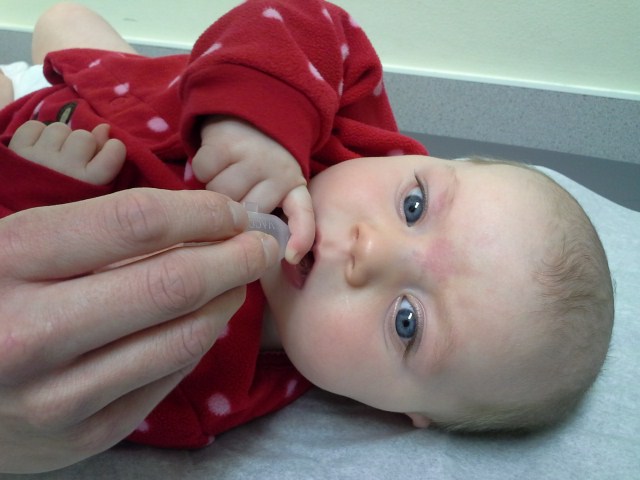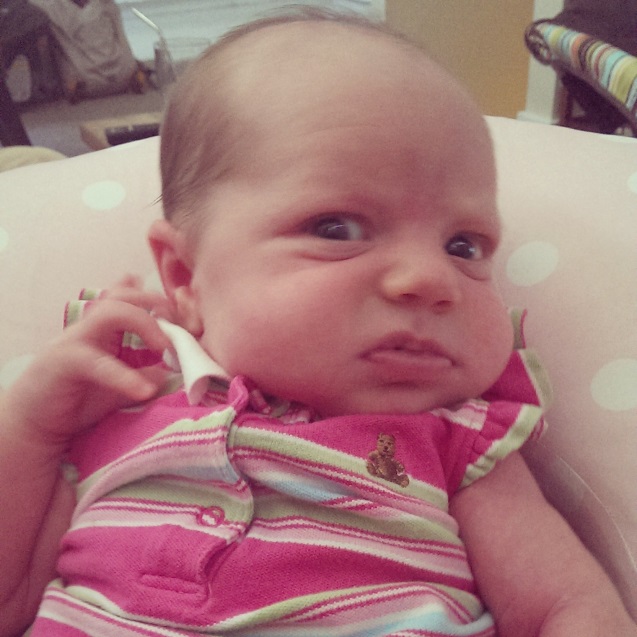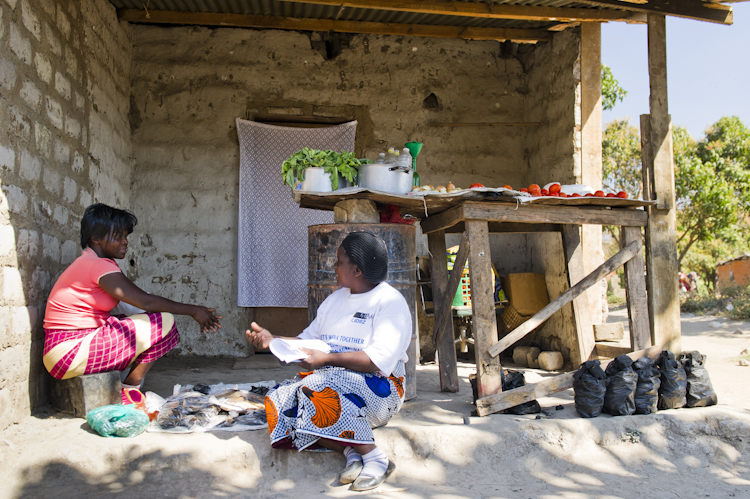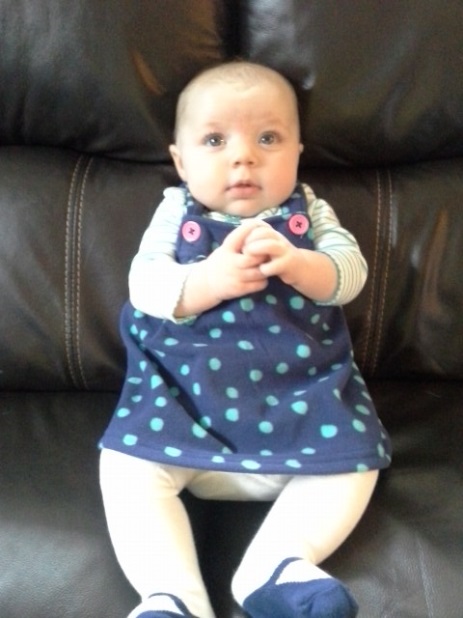A question I never thought I’d ask
|

Hazel loved the taste of her rotavirus vaccine
As a founding member of the Poo Crew, I've always been pretty confident that I know my sh-t. For eight years now, I've been helping to craft messages about the threat of diarrheal disease, and I've travelled to communities where diarrhea presents a very real danger to children and legitimate fear among their parents.
And then I became a mother - and, well, sh-t got real. Since my daughter Hazel was born this past July, I have discussed, analyzed, and pondered poop more than ever before… and that was during maternity leave - a million virtual miles from my laptop, logged off defeatDD.org, and on hold from my contributions to PATH's clinical trials of vaccines against the most deadly diarrhea. Sure, I had written all manner of materials about baby poop, but my own baby taught me that, actually (and in so many more ways than one), I could be pretty clueless. And then, by week 8 or so, I found myself in her pediatrician's office, internally ashamed, asking, “How do I know if my baby has diarrhea?”

Hazel taking care of "business"
The frequency of her dirty diapers had suddenly increased, and since she's exclusively breastfed… well, let me put this delicately: there never is any solid to speak of. So how would we know if she entered dangerous territory when a major diarrhea symptom is runniness? That's a given on a good day! Our daughter was just fine; turns out we're the ones who were a bit sick with the over-anxiety of new parents. But my mortification at not knowing the real-world answer to such a fundamental question about diarrhea introduced a new realm of respect for other mothers, particularly those in situations where a helpful pediatrician isn't simply a phone call or quick car ride away.
Where healthcare is scarce, how do mothers know how to recognize danger signs? The parents I visited in rural Zambia last year certainly couldn't scramble to the clinic every time their babies' business was questionable. I found myself reflecting on Agnes, and the pivotal, lifesaving role she plays as a community health volunteer for her village. Daily, without fail, Agnes visits the mothers around her to help them recognize the symptoms of diarrhea and the simple steps to prevent it. She also tells them about the new rotavirus vaccine, rolled out in 2012 to protect infants from diarrhea's most dangerous cause. Without Agnes, the children in her community might very well be in grave danger. She'd say her contributions were training and education. From my new perspective as a mother, I now see that Agnes provides a crucial, compassionate lifeline.

Agnes Mulunga visits a neighbor in Chigwilizano Village to talk about health and hygiene.
While I may have found myself a novice at motherhood, after so many years writing about diarrhea, there was one thing I certainly did know: Hazel was getting her rotavirus vaccine. Protection from the most dangerous cause of diarrhea connected my daughter to babies we saw in Zambia, and me to their mothers. Mothers in the clinics we visited were excited about the new vaccine, and I shared that enthusiasm on our trip back to the pediatrician for Hazel's first round of immunizations… though my excitement may have been a bit more than our nurse was used to. When I saw that tiny dropper in my own baby's mouth, I let the full-circle moment sink in. I had learned in ways I never could have imagined how vulnerable my little one could be—and how powerful the vaccines that keep her safe.

Protected!
I've learned how pivotal it is to teach mothers everywhere, in every community, how to recognize when their babies are threatened by diarrhea; how even when I thought I already knew, motherhood had still so much more to teach me. And the real-world gratitude for the vaccine that can protect my daughter from a life-threatening rotavirus infection? Well, let's just call that lesson “Number Two."
Who knew poo could be so profound?














